
LegCramps
A legcramp is when a muscle in the leg contracts or tenses suddenly andinvoluntarily. This can cause substantial pain, but cramps usuallyend relatively quickly. Leg cramps can sometimes happen at nightwhile asleep, usually due to the person's sleeping position. If aparticular muscle is overused or stressed for too long, it can becomedamaged or tired and may cramp later. Professional athletes need tobe aware of how their muscles are reacting to their training to avoidcramping that can restrict their performance.
Musclecramps can affect a person's daily routine with debilitating pain orweakening of the cramped muscle. It is particularly annoying when theleg muscles cramp, as this inhibits movement, a crucial part ofanyone's day. However, there are a few ways in which leg cramps canbe remedied or else avoided altogether.
Peopleof any age can experience muscle cramps for various reasons, althoughthey are more common in older people. Remember that prevention isultimately more helpful than trying to remedy existing muscle cramps,as preventative methods can help avoid immediate pain as well asfuture cramps.
LegCramp Prevention and Remedy
Musclecramps are sometimes caused by dehydration, so the logicalpreventative measure is to drink plenty of fluids. Sweating removesmoisture from the body, so during exercise or when in a warm climate,drink plenty of water and other beverages like fruit juice.Sometimes, the reason for leg cramps is actually a deficiency inparticular minerals such as calcium or magnesium. Vitamin supplementscan therefore help if frequent muscle cramps are experienced.
Aglass of warm milk or water before sleep can help prevent musclecramps, just as a warm shower or bath can, as the warmth helps themuscles in the body to relax and reduces the risk of involuntarycontractions. Similarly, when experiencing muscle cramps, massagingthe area will generate heat and have the same effect.
If amuscle cramp is happening already, the muscle can be gently stretchedout to alleviate the tension. If the calf muscle is cramping, pullingthe foot upwards by the ball of the foot while pushing down softlywith the leg will stretch the muscle back out. Alternatively,standing a few feet from a wall with both hands against the wall andstretching the affected leg out backwards with the heel touching thefloor will have the same effect.
Frequentleg cramps can be avoided by regular leg exercises or stretches. Thiswill help relax the muscles and reduce the risk of them contracting.However, if none of the above advice helps remedy very frequent legcramping, consult a doctor, as there may be underlying problems thatthey will be able to diagnose.


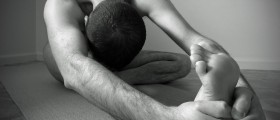




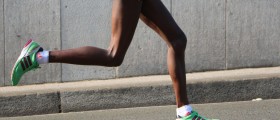
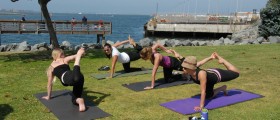
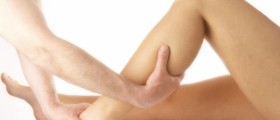
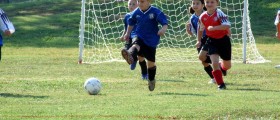






Your thoughts on this
Loading...